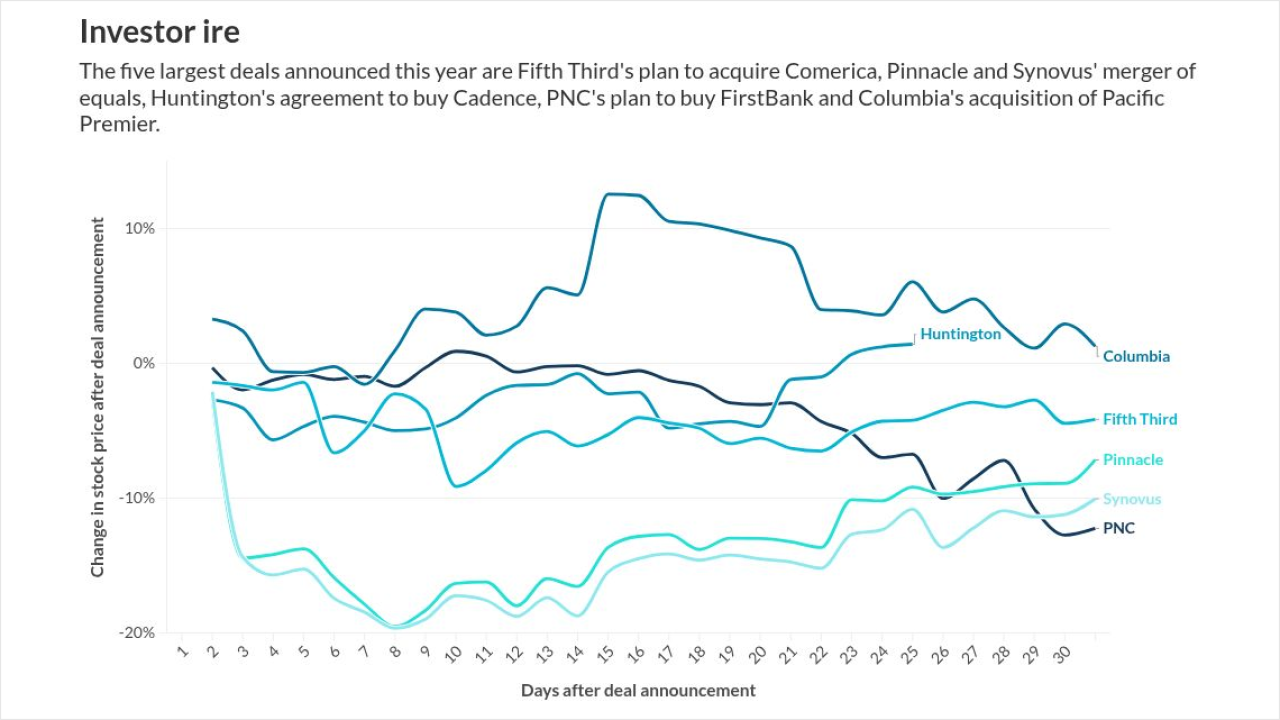Want unlimited access to top ideas and insights?
Pentagon Federal Credit Union, the nation’s third-largest credit union, kicked off 2019 with a unique expansion move — a merger with the $383 million-asset Progressive Credit Union that gives PenFed an open charter, allowing anyone nationwide to join.
Designated by the National Credit Union Administration as an “emergency merger,” the acquisition took effect Jan. 1 and brings an end to years of struggles for New York-based Progressive, which was plagued by bad taxi medallion loans that led to declining revenues. In the first nine months of 2018, Progressive posted a net loss of about $53.3 million, after recording a net loss of about $65.7 million in the same period of 2017.

In a Dec. 26 letter to members, Progressive’s former CEO, Robert Familant, wrote that as a result of “challenges that continue to pressure all taxi medallion credit unions,” Progressive’s board viewed a merger with PenFed as “the best strategic option” and in “the best interest of our members.”
While it’s not unusual for large credit unions to absorb smaller credit unions burdened with high concentrations of taxi medallion loans — in the second half of 2018, Teachers Federal Credit Union absorbed
Not surprisingly, banking trade groups were none too pleased to see PenFed — one of the nation’s most prominent credit unions, which has already made a number of aggressive growth moves — granted a nationwide field of membership.
The American Bankers Association was quick to criticize the NCUA’s approval of the merger and its willingness to give PenFed further expansion capabilities.
“This merger is just the latest example of large credit unions far exceeding their original mission to serve targeted communities of modest means,” Ken Clayton, the ABA’s executive vice president of legislative affairs, wrote in a Jan. 2 blog post. “This not only hurts small credit unions playing by the rules, but also taxpayers who are unknowingly subsidizing this national expansion.”
Clayton further asserted that the NCUA approved this merger too quickly under the aegis of an ”emergency merger” for credit unions that are at risk of insolvency.
“This ’emergency merger’ has been enabled by the very federal regulator that is supposed to be overseeing the industry,” he added. “Congress should look no further than this combination to quickly see the fiction that large credit unions have become.”
But NCUA representatives said that the Federal Credit Union Act allows the regulator’s board to “authorize an emergency merger of an insured credit union that is insolvent or in danger of insolvency if an emergency requiring expeditious action exists, if other alternatives are not reasonably available and the public interest would be best-served by approval.”
After careful analysis, the NCUA added, its board was satisfied these conditions were fulfilled and that approving a merger with PenFed was the best option for limiting losses to the National Credit Union Share insurance Fund.
“This is unlike anything we’ve ever seen,” Rebeca Romero Rainey, president and CEO of the Independent Community Bankers of America, said Thursday in an interview.
A deal that “negates” field-of-membership limitations on a large, rapidly growing credit union “runs contrary to the will of Congress,” she added.

PenFed President and CEO James Schenck said in an interview Thursday that the $24 billion-asset credit union has noe plans to change its membership policies despite the new charter, adding that as a multiple common-bond credit union it already has a presence across all 50 states. While PenFed does plan to add some retail locations in Manhattan as a result of the deal, “This merger does not change what and who we are,” Schenck said, adding that the credit union will continue to focus on serving members of the military and their families.
Banking advocates were skeptical about PenFed’s intentions, however, noting PenFed has previously voiced a desire to triple its size and
“Why would the CEO of a small bank or credit union believe that?” Clayton said Thursday in an interview.
Policymakers “should be significantly concerned about" what PenFed’s acquisition of Progressive "might portend, and ask themselves how long they want to continue subsidizing this type of aggressive entity,” Clayton added.
High delinquencies
According to NCUA call report data, Progressive had about $396 million in outstanding commercial loans at the end of the third quarter of 2018, about $98 million of which were classified as delinquent. Nearly one-quarter (24.8 percent) of the credit union's loans were more than 60 days delinquent.

Schenck indicated that PenFed officials aren’t worried about those figures, however.
“Progressive’s loans outstanding is a tiny percentage of PenFed’s total loans outstanding, thus we have a very diversified portfolio and we believe we can absorb these troubled loans onto our books,” he said.
Liquidating the taxi medallion loans, he added, would have “yielded only pennies on the dollar” and PenFed believes it can “maximize their value by providing time and liquidity” to the members, he said.
“We will not call in the taxi medallion loans — we will give the holders the time to pay them off over time while they continue to earn a living,” Schenck said. “Progressive CU has been helping the little guy in the transport industry in New York for many years and we will continue that.”
Schenck added that although medallion prices had fallen sharply in recent years, “we have recently seen the value of the collateral stabilizing.” While Progressive has incurred heavy losses in recent years, he noted, it remains well-capitalized, with a net worth ratio of 11.64% on Sept. 30, 2018 (versus a net worth ratio of 11.21% for all federally insured credit unions in the third quarter of 2018).
Schenck said he and Familant began discussing a possible merger during the third quarter of 2018, and the NCUA approved the deal in December, citing the capital constraints Progressive was under.
“They thought that allowing Progressive CU to merge into a larger credit union like PenFed was preferable to putting it into conservatorship,” he added.
At least one outside observer, however, cautioned that Progressive's portfolio could still cause trouble for PenFed.
Vincent Hui, managing director at Cornerstone Advisors, warned that Progressive's losses may not have yet bottomed out, meaning even though the market may seem stabilized, further decreases in value could still take place, creating losses for PenFed.
“However, if the acquirer books a large purchase accounting adjustment, it may isolate it from some future losses,” Hui added. “Of course, if the bottom is reached, then it is all upside for the acquiring credit union, but that’s an iffy proposition in a rising-rate environment.”
More expansion to come?
ABA officials worry that the NCUA’s long-discussed plans to revise its rules governing alternative capital could hand PenFed another tool to spur expansion.
PenFed “has made all the right statements” about limiting membership, but “they have a growth agenda they can’t achieve serving only the military,” Keith Leggett, a retired ABA economist who continues to blog about bank-credit union issues, said Thursday in an interview.

Peter Duffy, a merger expert and managing director at New York-based Sandler O'Neill, suggested PenFed has done its due diligence on this deal and determined any potential risks were outweighed by the upside.
“PenFed likely looked at the deal both from within and through independent analysts and concluded that, given its size and scale, the transaction offered some significant benefits to both sets of members,” Duffy said.
Sandler O'Neill, which frequently advises banks and credit unions on mergers, did not advise PenFed in this transaction.
With respect to gaining Progressive’s open charter, Duffy noted that PenFed, as a high-performing credit union that sees large banks and large credit unions as its rivals, likely saw the national charter as a way to leverage “a bigger national footprint.”





